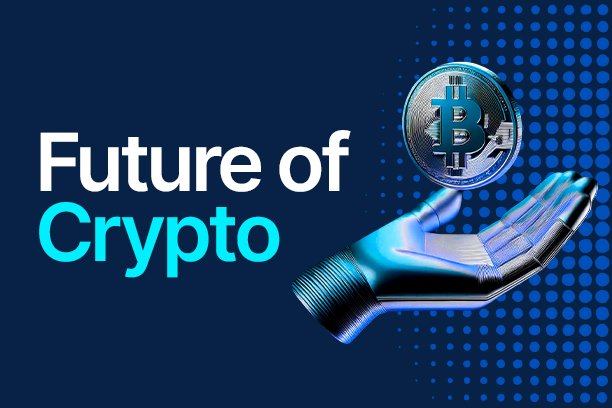The cryptocurrency market has evolved dramatically over the past decade, transitioning from a niche space dominated by early adopters to a multi-trillion-dollar industry influencing global finance. As the market grows, so do the complexities of trading, risk management, and strategy execution.
Automation has emerged as the defining factor shaping the future of crypto trading, and Matthias, a leading voice in the industry, believes that trading bots are not just an advantage but a necessity.
The Rise of Trading Bots in Crypto Markets
Crypto trading is vastly different from traditional stock or forex markets. Unlike conventional financial markets that operate during specific hours, the crypto market runs 24/7, requiring traders to be constantly vigilant. This non-stop activity has given rise to trading bots—automated software designed to execute trades based on pre-set algorithms and market conditions.
Matthias points out that manual trading is becoming increasingly inefficient as markets become more volatile and institutional players enter the space. He highlights the growing dominance of algorithmic trading, stating:
“The future of crypto trading isn’t about who clicks faster; it’s about who builds the smartest, most adaptive bots. In a world where milliseconds matter, automation is no longer optional.”
With thousands of assets and multiple exchanges operating at all times, human traders struggle to keep up with market shifts. Trading bots, on the other hand, can process massive amounts of data, execute trades instantly, and remove emotional biases from decision-making, offering a clear edge in the fast-moving crypto landscape.
How Automation is Taking Over
The rise of high-frequency trading (HFT) and automated strategies has transformed market dynamics. According to a 2023 report by CryptoCompare, algorithmic trading now accounts for nearly 80% of crypto market transactions, a significant jump from just 50% in 2019. This trend mirrors the traditional finance sector, where nearly 70% of equity trading volume in the U.S. is algorithmically driven.
Moreover, data from Kaiko Research indicates that automated market makers (AMMs) and decentralized exchanges (DEXs) now facilitate over $2 billion in daily trading volume, further proving that automation is not only reshaping centralized exchanges but also the decentralized finance (DeFi) ecosystem.
Additionally, the adoption of AI-powered trading algorithms has significantly increased, with machine learning models now analyzing historical data, market trends, and even social media sentiment to optimize trading strategies.
According to a 2024 survey by Binance Research, over 65% of institutional crypto traders rely on AI-driven trading models, highlighting the growing shift towards intelligent automation. The ability of bots to perform arbitrage trading across multiple exchanges, execute split-second scalping strategies, and dynamically adjust portfolios based on real-time market data has further reinforced their dominance in the trading landscape.
Matthias believes that traders who resist automation will find themselves at a severe disadvantage. He explains:
“Markets don’t wait for emotions, second-guessing, or hesitation. Trading bots execute based on pure logic, data, and strategy—qualities that outperform human traders every single time.”
Why Crypto Traders are Embracing Bots
One of the biggest appeals of trading bots is their ability to eliminate human error and emotional trading. Fear, greed, and panic are some of the most significant reasons why traders make irrational decisions. Automated bots remove these psychological factors, ensuring that trades are executed strictly based on strategy and market conditions.
Additionally, bots allow for round-the-clock trading, ensuring traders never miss opportunities, whether it’s during high-volatility events, news announcements, or flash crashes. Many traders also leverage bots for arbitrage trading, scalping, and market-making strategies that require precision and speed beyond human capability.
Another reason behind the widespread adoption of automation is the integration of machine learning and AI-powered bots. These advanced bots can analyze historical data, identify patterns, and adapt to market changes in real-time, making them more effective than ever before.
JeetBot: The Future of AI-Powered Trading
Matthias is a strong proponent of JeetBot, an AI-driven trading ecosystem that is changing the game for both retail and institutional traders. Launched as a next-gen trading platform, JeetBot offers a six-level deep referral program, real-time market execution, and an adaptive algorithmic strategy that learns from past performance.
Unlike traditional bots that follow static rules, JeetBot is designed to evolve, making it more effective in handling the unpredictability of crypto markets. Matthias believes this kind of automation is the future, saying:
“JeetBot isn’t just another trading tool—it’s a fully-fledged ecosystem built to help traders maximize profits, minimize risk, and scale their strategies without the emotional baggage of human trading.”
JeetBot’s launch saw a huge demand, with thousands of users signing up in just 24 hours. This rapid surge caused temporary registration delays. The rapid adoption of such platforms shows that the industry is shifting toward fully automated, decentralized, and intelligent trading solutions.
A Fully Automated Crypto Future
Looking ahead, the role of automation in crypto trading will only continue to expand. With advancements in AI, blockchain interoperability, and decentralized finance (DeFi), we can expect trading bots to become even more powerful and autonomous.
As institutional interest grows, regulatory clarity improves, and AI-powered trading strategies become mainstream, the traders who leverage automation will be the ones who thrive in the next bull run.
For those still hesitant about embracing trading bots, Matthias offers a final thought:
“The crypto revolution isn’t about individual traders anymore—it’s about who can leverage technology the best. The winners of the next decade won’t be those who trade manually but those who build and optimize automated strategies.”
Automation is no longer a luxury—it is the defining factor in who will succeed in the evolving world of crypto trading. Traders who recognize this shift and adapt accordingly will find themselves on the right side of history.





